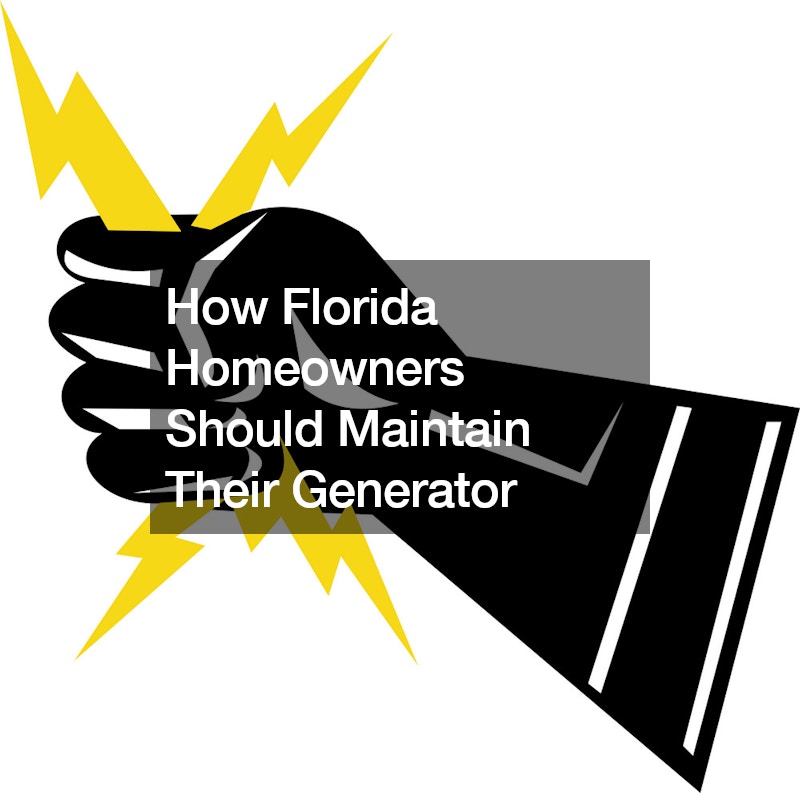A home generator is a crucial asset for ensuring a continuous power supply during outages, making it essential for homeowners to maintain it properly. Regular maintenance not only extends the lifespan of your generator but also ensures it operates efficiently when needed. Here are some key steps Florida homeowners should follow to keep their generators in top condition.
Regular Inspection
Performing regular inspections is the first step in maintaining your generator. Check for any visible signs of wear and tear, such as frayed wires, loose connections, or corroded components.
Inspect the fuel system for leaks and ensure that the fuel lines are secure. Regular inspections can help identify potential issues before they become significant problems.
Change the Oil and Filters
Just like a car engine, a generator requires regular oil changes to function correctly. Typically, oil should be changed after every 100 hours of operation or at least once a year, whichever comes first. Along with the oil, replace the oil filter to ensure clean oil circulates through the engine. Additionally, change the air filter regularly to prevent dirt and debris from entering the engine, which can cause damage and reduce efficiency.
Test the Battery

The battery is a critical component of your generator, and it needs to be in good condition to start the engine. Check the battery terminals for corrosion and clean them if necessary. Ensure that the battery is fully charged and consider using a trickle charger to maintain its charge when the generator is not in use. Replace the battery every two to three years to avoid unexpected failures.
Run the Generator Periodically
When it comes to maintaining home generators in Southwest Florida, it’s important to run the generator periodically. Even when not needed, this helps keep the engine and other components in good working condition. A monthly run for about 30 minutes under load ensures that all parts are lubricated and prevents moisture buildup, which can lead to rust and other issues. This exercise also helps identify any performance problems that need attention.
Follow the Manufacturer’s Maintenance Schedule
Each generator model has specific maintenance requirements outlined by the manufacturer. Follow the recommended maintenance schedule, including any specific tasks unique to your generator. Adhering to these guidelines ensures optimal performance and longevity of the unit.
Store Fuel Properly
If your generator uses gasoline, store the fuel in an approved container and add a fuel stabilizer to prevent degradation. Check the fuel regularly and replace it if it’s more than six months old. For diesel generators, ensure the fuel tank is full to minimize condensation and add fuel additives to prevent microbial growth.
For those with home generators in Southwest Florida, maintenance is essential for reliable performance and long-term durability. Regular attention to these maintenance tasks can save time, money, and stress, ensuring peace of mind during power outages.





